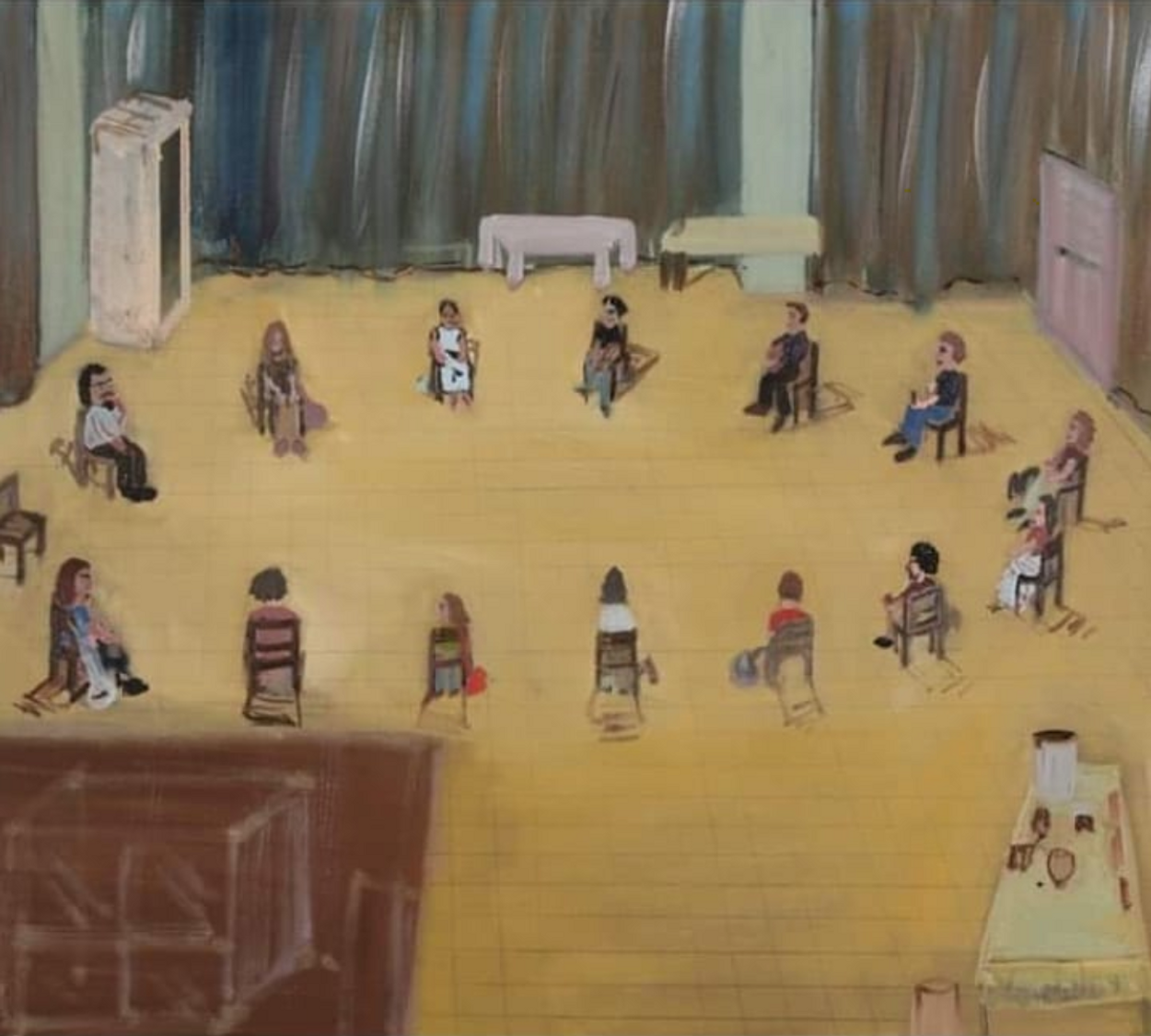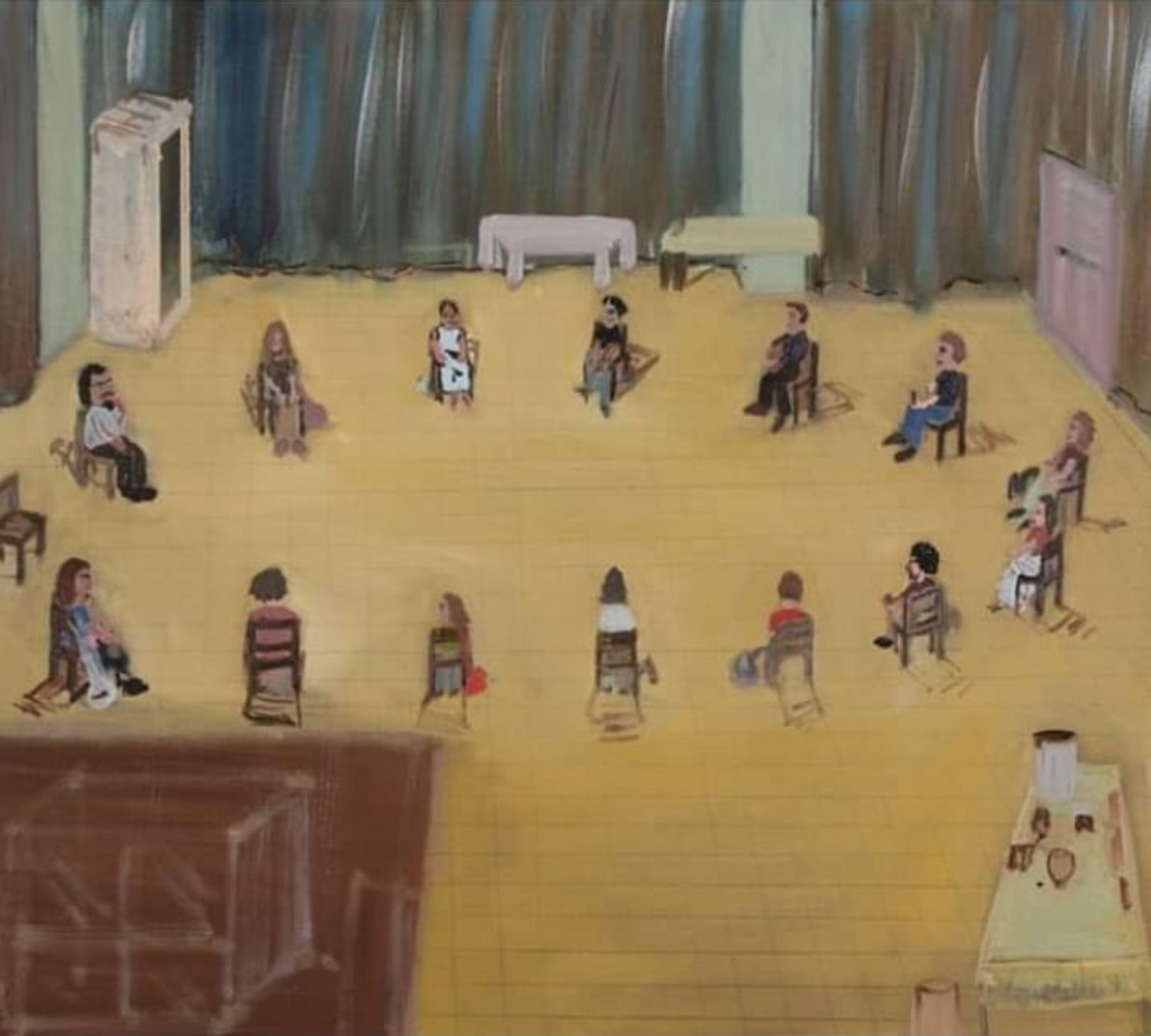The Trouble With ‘Solitude’
William James was wrong: Religion is a highly social affair




In his 1902 magnum opus, The Varieties of Religious Experience, the American philosopher William James defined religion as “the feelings, acts, and experiences of individual men in their solitude … in relation to whatever they may consider the divine.” For James, religion’s essence was not to be found in sacraments, not in Scripture, not in obeisance to clergy. To the contrary: A man had to determine for himself what he “may consider the divine,” and he should do that not in church, not at a revival meeting, but in “solitude.”
This was a radically democratic formulation. A New England pragmatist, born to a Swedenborgian, and with a strong interest in parapsychology, James had little use for the Standing Order, no time for the old faiths of the Congregationalists, Anglicans, or Roman Catholics. His milieu was one of seekers, contrarians, and mystics. A half-century before the Beats and the 1960s counterculture, he was thumbing his nose at “organized religion.” Today, his emphasis on personalized faith is alive and kicking, found in the masses of self-identified “spiritual but not religious,” as well as the more metaphysical fringes of the “wellness” trend.
In recent weeks, unable to be with my synagogue community, I have been thinking about James’ view of religion as inherently solitary. And I have decided that it’s total bunk. Religion, even highly personalized, idiosyncratic musings to oneself about the nature of the universe, is a highly social affair. It’s almost impossible to do alone.
If religion flourished for people in solitude, we’d expect that the past month would have been a boom time for reflections on the divine. Instead, people are noticing how much religion they miss. Not just the regular stuff, the daily or weekly gatherings, but the special occasions. We’ve been reminded that, when we mark life’s central occasions before God (however understood)—burying, marrying, welcoming children—we invite others.
In the past weeks, we have seen how bereft people are at having to bury loved ones with no funeral. Friends have postponed weddings, because that kind of covenant, commitment, or oath seems to require an audience. In Judaism, newborn boys are going without the traditional circumcision ceremony, which is not just a snip but a public snip, to which the entire community is supposed to be welcome (you don’t invite people to a bris; rather, you announce it, so anyone might come).
Of course, James was perfectly aware that traditional religions were collective in nature. In the lectures upon which his book was based, he admits up front that he will “ignore the institutional branch entirely, to say nothing of the ecclesiastical organization, to consider as little as possible the systematic theology and the ideas about the gods themselves.” He will confine himself as far as he can “to personal religion pure and simple.”
But he wasn’t making this distinction “arbitrarily,” as he claimed. To him, old collective (Christian) forms were not containers of true religiosity. “Churches, when once established, live at second-hand upon tradition,” he wrote, for “the founders of every church owed their power originally to the fact of their direct personal communion with the divine.” It’s that personal communion he wanted to get at. He was trying to orient our idea of religion back to the personal. When people heard the word “religion,” he wanted them to think of something old made new again: less public prayer, fewer sermons, more time spent in contemplation.
But this impulse, to devolve spiritual authority to every man and woman, is not as democratic as it seems. Left to our own devices, most of us do not have theophanies like Moses’, and we don’t come up with the Sermon on the Mount. The idea that a long, quiet walk in the woods yields metaphysical reflection might be right for, say, professional philosophers, but for most of us it will be a bust. About five minutes into my walks, I’m having thoughts like, “Has there been a better video game than Frogger?” and “Why would anyone get a poodle?”
Even people who think that they are cultivating a unique religious journey seldom are. They are relying on books, podcasts, videos, Tarot cards, or History Channel specials that may have audiences of millions, which is why self-proclaimed seekers so often spout clichés. The truth is, there aren’t that many creative new paths up the mountain of truth. Plenty of people aren’t interested in metaphysical questing, but those who are usually gravitate to an extant vessel, to give form to their musings. That vessel could be Methodism or Scientology, Zen Buddhism or Zen and the Art of Motorcycle Maintenance.
About five minutes into my walks, I’m having thoughts like, ‘Has there been a better video game than Frogger?’ and ‘Why would anyone get a poodle?’
Of course, “the more the merrier” is not always the best principle. Some spiritual work is best done away from the crowds. The great religions have recognized that certain people, on certain journeys, require solitude. Roman Catholics have an old tradition of hermits and the cloistered religious. In Judaism, the Hasidic master Nachman of Breslov (1772-1810) taught his disciples hitbodedut, meditation as a private conversation with God, done in a quiet room or, best of all, in the woods or a field. Buddhist meditation, in its many forms, requires silence, a retreat from the cacophony of other people.
But all of these solitary paths embed people in much larger communities, across the world and across the generations. One is not alone—one is with Torah, or the catechism, or the sangha. The goal, these traditions seem to be saying, is to find oneself within the larger whole, to be unique at the same time that one belongs.
James was right to dethrone the church or the congregation as the sole approved guide to everyone’s spiritual journey. But he was wrong to say that solitude was the one true alternative. As for me, I want neither megachurch nor to be alone with my thoughts. All this enforced time with just my wife and children has reminded me that, sometimes, the family is the best unit of religious observance and reflection. To the Friday night Shabbat dinner, we have, under quarantine, added the Saturday night candle-lighting for Havdalah, or separation, the return to ordinary time after the Sabbath. The search for the divine in one’s own family, I am finding, beats the madness of crowds—and the maddening triviality of my own mind.
Mark Oppenheimer is a Senior Editor at Tablet. He hosts the podcast Unorthodox. He has contributed to Slate and Mother Jones, among many other publications. He is the author, most recently, of Squirrel Hill: The Tree of Life Synagogue Shooting and the Soul of a Neighborhood. He will be hosting a discussion forum about this article on his newsletter, where you can subscribe for free and submit comments.